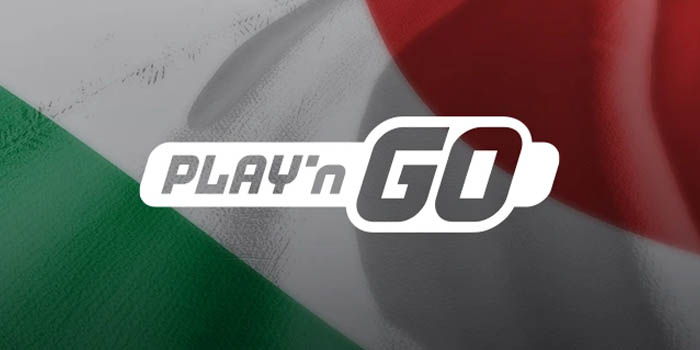Funfair Lloyd Purser: Time Is Ideal for Disruptive Multiplayer Series of Games

Hello Lloyd,
It’s very good to have this opportunity to talk with you. Since beginnings are always hard, we will jump right into it.
FunFair Games has been up to many exciting things recently, but perhaps nothing rivets attention the same way as the promise of your multiplayer casino games.
With ‘Rocketeers: To the Moon!’ in the pipeline, we were hoping to pick your brain about what the games of the iGaming future would look like. From afar, it seems FunFair Games is on the right, industry-defining track.
This brings us to our first question.
Q: Is multiplayer the future of the iGaming industry? Will we see games that remind players more of the video game products we see listed on the Steam and Epic Store?
We believe it is the future for several reasons. There is a significant gap in the market for real-money, multi-player, single outcome games that we know appeal to Gen Y and Gen Z audiences and that we know they play in large volumes.
The new generation of gamblers don’t identify as much with more passive slot games. They want to be engaged, empowered and exert control over outcomes therefore decision-based games that provide amazing experiences and social elements, such as sending emojis or chatting, effectively create a large community of like-minded players.
Whether we see games that remind players of what’s on platforms like Steam or Epic I am not sure, not in the very near future anyway. They’re hugely featured rich and very immersive without being focused on gambling. At the moment, immersion in our games comes from the simplicity of play, understanding exactly how to win, adding player control and decision making to the experience with big win potential, that’s our focus.
Q: Does ‘multiplayer’ as a concept overlap with other pitched ideas about iGaming innovation involving skill-based games or just a skill element to the gameplay?
There is overlap as multiplayer games can combine many different elements and crossover many different styles, however our games are multiplayer with a single outcome.
The mechanics are highly compelling and exciting however, the entertainment remains focused on the ‘gamble’ and the one decision and ‘perceived skill’ of making that decision. In the case of Rocketeers, this is about deciding the optimum point at which to cash out before the spaceship crashes.
Simplicity is crucial as we have experienced from games in the crypto world. Most successful multiplayer crypto games, such as Crash, are straightforward and have low-spec production values. We have thoroughly researched this sector and kept the core foundations, but built on these successful mechanics, adding tier-one graphics, animation, and audio that we believe will bring these titles into the mainstream.
Q: FunFair seems to break-ground with new and promising game concepts, and not least gameplay that feels very different from traditional slot titles. Do you reckon other developers would need to follow in this non-linear approach you are trying to pioneer to be able to keep up?
There are a handful of real-money multiplayer concepts on the market but none that we believe can compete with existing high production slots and table games.
We feel the timing is ideal for a disruptive multiplayer series of games for next generation casino players. Some brands add 20 or 30 new games every week to their sites and the market is rapidly becoming oversaturated. Equally, it’s becoming more difficult to stand out as a provider and when promoting individual games, so we think it’s high-time players we able to play something truly unique, interactive, immersive, and different to the traditional casino content they are presented with today. We also know operators have strong appetite for unique and differentiated content.
Q: You will be releasing ‘Rocketeers: To the Moon!’ in H1, 2021. How soon after do you think the next multiplayer game will arrive?
Our first game, Rocketeers: To the Moon! takes its inspiration from the crypto gambling world and has massive win potential of up to 10,000x, so we’re excited to see how it takes off when it’s launched next year. We then plan to launch a new multiplayer game two months following, then up the cadence to once a month. This gives us the chance to focus on quality game releases with the right partners to maximise distribution.
Our other concepts include a multi-level Wheel Game where players must again make that crucial ‘gamble’ and decide which numbers are going to win, we’re also adding random multipliers to bet selections after the bets close adding more excitement. Players need to decide whether they go it alone or follow the crowd, while they can also bet on the bonus being hit to move up to the next levels for bigger wins.
We also have a Day of the Dead themed pinball-style game in development where players can bet on one or more of up to five balls that are fired and fly around the board collecting wins with some winning, some losing and some smashing the skull to reveal a wild bonus round and even bigger prizes.
Q: Do you reckon building loyalty plays a key part in a new product’s success? In this sense, do you think players out there tend to stick to certain brands or games and completely ignore others?
Loyalty is hard to gauge in casino where there are so many brands and games to choose from, however if you look at multiplayer Crash-style games in the crypto space, for example, players regularly play these. Our research shows that nearly 60% of players gamble more than twice a month and 32% gamble several times a week, while 59% gamble more than $1 per bet and 25% more than $20 per bet. Crucially, 74% of the players we surveyed were Gen Y or Z showing that the appetite for this genre is there, and we can’t wait to launch it at scale to the iGaming world.
Q: Gambling is a social experience, but most games are single player focused these days, notwithstanding some table and live games, that is. Do you reckon your multiplayer concept will solve this and help the player base feel better connected? Can we talk about a true social element as a result of FunFair’s new developments?
For us, multiplayer drives community and makes an often solitary experience a shared one. The social element is an important part of our strategy and a no-brainer when you think of our target audience. The Gen Y/Z group are always connected across several platforms and in constant communication with their peers, so we want to bring that element into our games. To bring a social element to Rocketeers, other players’ activity is on view, both in real-time and historically, and players can express themselves and talk to each other through emojis and we’ll look to add chat and more community features incrementally as our games gain traction.
Q: Developers today seem to add more and more features to their games – an extra spin here and another reel there. We feel that this doesn’t change the industry fundamentally. Do you reckon this will improve in future and developers will focus on entirely new concepts rather than add more and more features to existing products?
Industry innovation has been impressive in the last few years, mainly from a feature and functionality point of view. Where we perhaps could see more radical change is how slots are played or presented, and this is what we are trying to do with our games. We are building alternative concepts based on the core foundations that attract Gen Y and Gen Z. To stay relevant in this competitive market developers must continue to push the boundaries and come up with new concepts. This is not to say that feature-filled slots are going anywhere, there is still a huge demand for this type of high-quality content.
Q: Are there companies you admire for the courage they take in bringing innovation to the iGaming experience for consumers and businesses?
There are other developers out there in both the land-based and digital sectors that are working hard to introduce new concepts. The likes of Green Jade and GameCo are also combining skill-based elements and video game inspiration within a gambling framework. Evolution is another good example with an impressive genre of game-show style live games that are innovative in their features and entertainment-focused. Those are just a few suppliers that are thinking outside the box and I expect we will see more unique ideas being introduced next year as the industry look to diversify further.
Q: Do you see yourself creating entertaining multiplayer experiences for consumer bases beyond slots?
We are not solely targeting slots players with our content. We want to offer experiences that attract all types of players including sports bettors, esports enthusiasts, and fans of live casino and table games. Our aim is to make games for everyone, but what we do know is that they will offer something to Gen Y and Z that slots do not.
Q: If there was one thing you could immediately alter about the iGaming industry today, what would it be?
The one thing we’re trying to change is to add more variety and innovation in content, which I think is something that’s been missing for some-time now. When we look at what we’re doing as well, it’s not wholesale innovation but something which is incremental to the infrastructure that’s out there.
Of course, and most importantly, if I could change the situation with COVID that would be a starting point. Many families have been affected through health and their professions, especially those in the land-based/retail sectors which has been hit hard globally throughout the year. We hope we can move into 2021 with businesses back to normal, get back to meeting our peers face-to-face and have the industry fully thriving again. That would be my main wish for iGaming.
Mike made his mark on the industry at a young age as a consultant to companies that would grow to become regulators. Now he dedicates his weekdays to his new project a the lead editor of GamblingNews.com, aiming to educate the masses on the latest developments in the gambling circuit.















